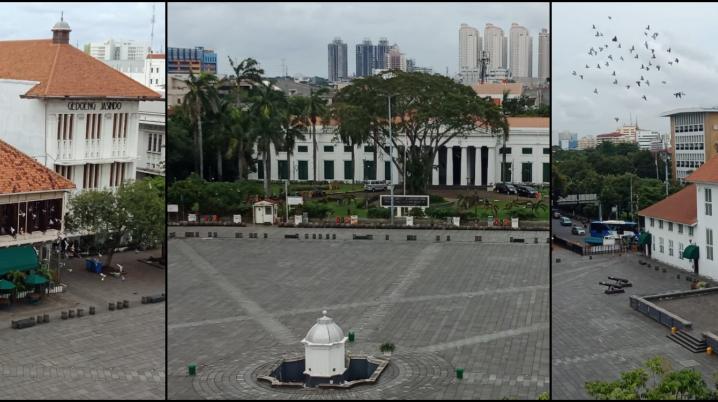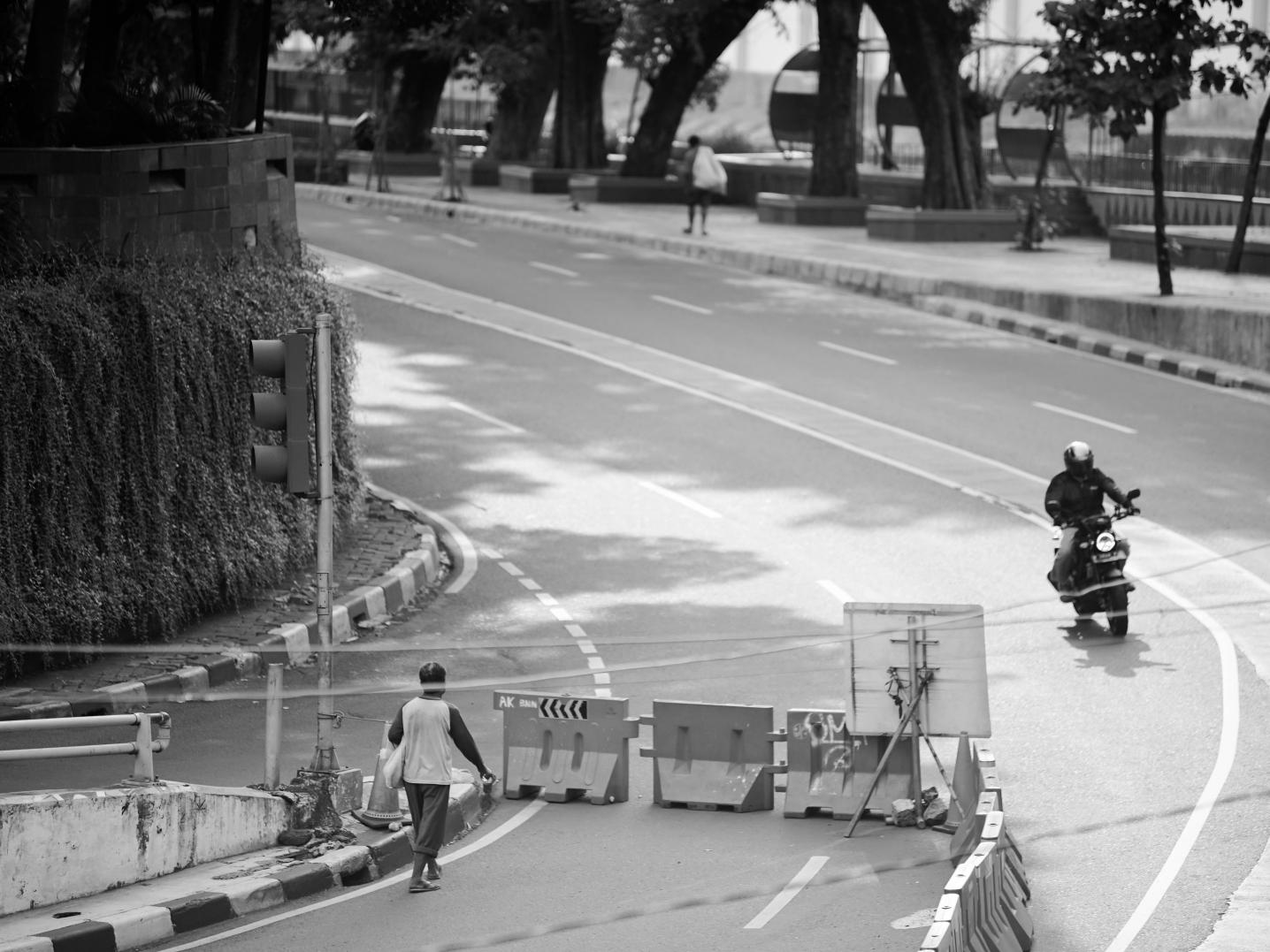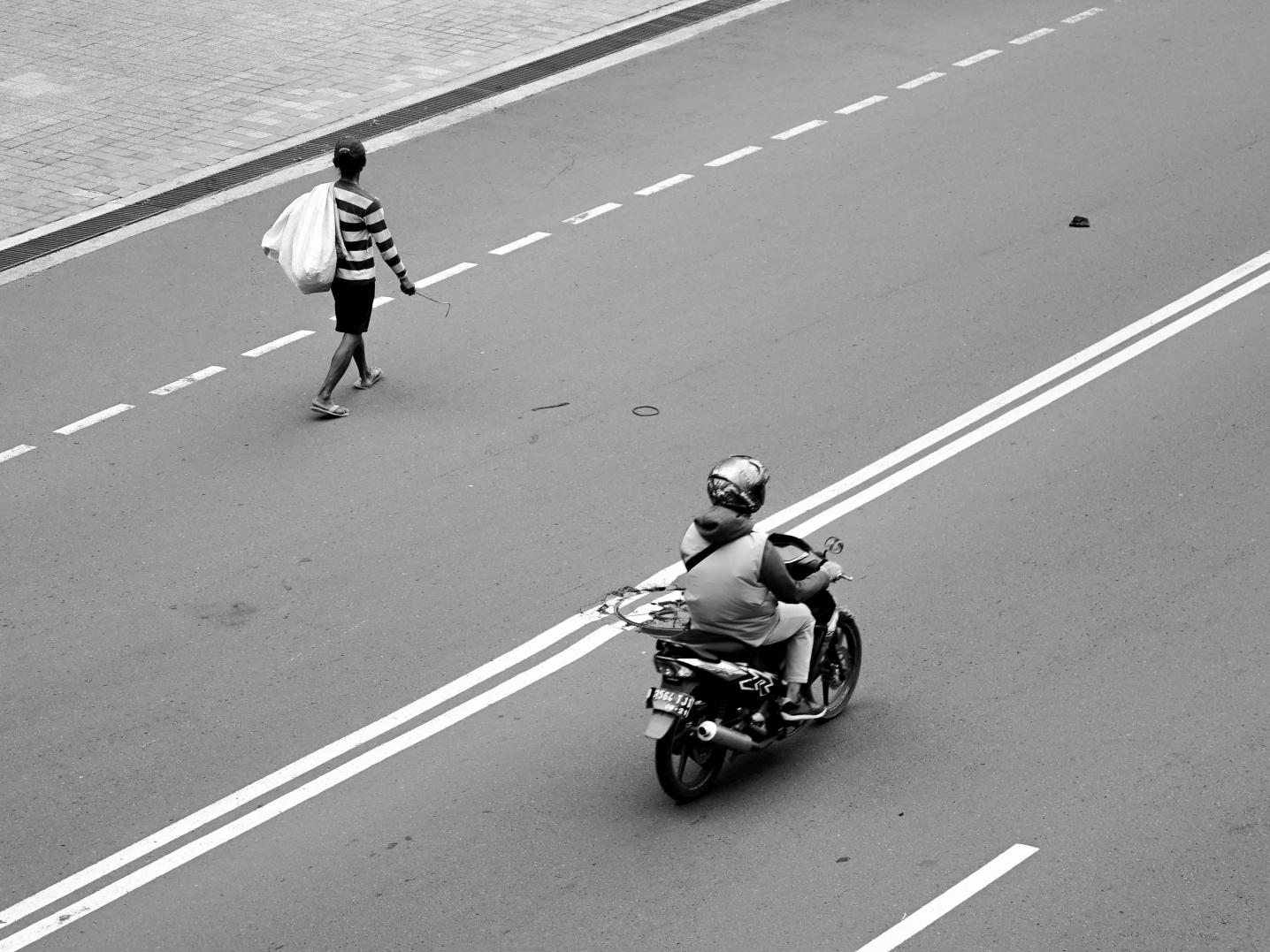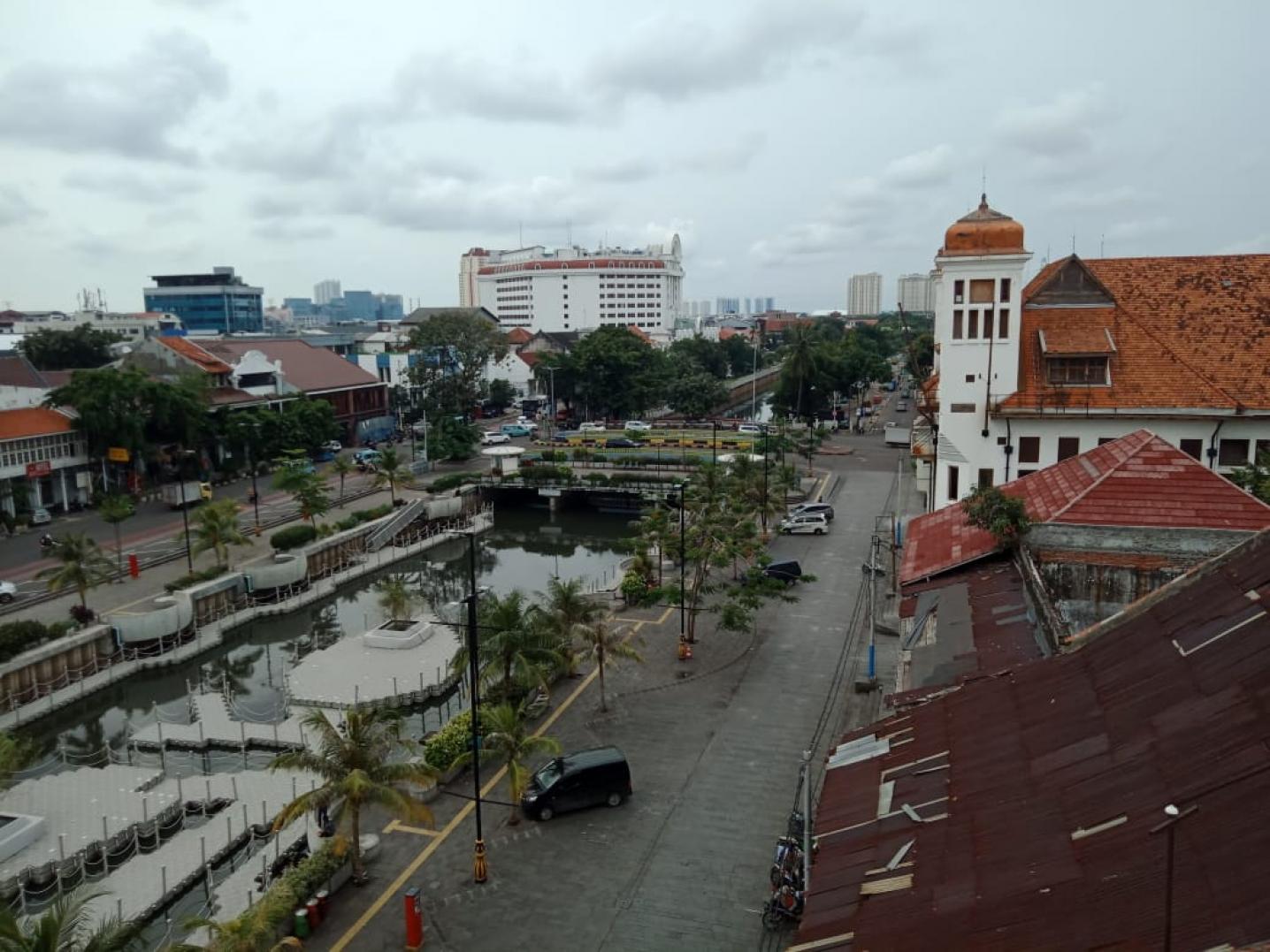
The arts as window in times of crisis – Recap Infected Cities #2: Jakarta
On 14 May, professionals from different backgrounds appeared over Zoom in the close-to-empty studio of Pakhuis de Zwijger, for a conversation led by moderator Zoë Papaikonomou. Mostly from their homes in Jakarta, they gave an insight in their city with stories of poverty, affected communities, and the importance of staying connected through arts and culture. (video below)

As the first city in Indonesia, Jakarta is starting with easing the Large-Scale Social Restrictions (PSBB) which have been in place since early April in an attempt to slow down the spreading of the COVID-19 virus. Indonesia’s first COVID-19 case was registered in Depok, within the Jakarta Metropolitan area, on 2 March, and Jakarta was the first city to implement PSBB; the rest of the country followed suit.
On 4 June, governor Anies Baswedan of Jakarta announced that the PSBB would be extended till the end of June as a transition period towards the ‘new normal’, or living with COVID-19. Within this period, different sectors are allowed to reopen at half capacity: offices, shops, restaurants, warehouses, malls, museums, galleries and libraries. Other cultural venues such as theatres and concert halls are not included, for reasons unclear.
Succumbing to economic arguments
This is a curious move, as the numbers of COVID-19 infections and deaths within Indonesia have been rising steadily. The Jakarta government however states that in most of the city’s communities infections are low and the death rate is going down, and are thus safe for reopening. It is generally believed that the government is succumbing to economic arguments. Millions of Jakartans are working in the informal sector and are depending fully on their daily income: not working means no money to buy food. Also, Jakarta has “experienced an unprecedented 45% fall in tax revenue, leading to drastic cuts in spending,” according to The Jakarta Post.

Magnitude of the crisis
Several experts and artists from different backgrounds living in Jakarta are sharing their experiences of life in this megacity with a partial lockdown. Olivia Herlinda, policy director at the Centre for Indonesia’s Strategic Development Initiatives: “In the first weeks of PSBB streets and squares were empty, which was quite alienating.” But by mid-May, Herlinda noticed that people were going out again, using public transportation and going to work. She feels that PSBB is not being strictly enforced. Herlinda also asserts that the data published on COVID-19 infections are not reliable, as there is delay between the actual time of infection, the moment patients get tested and the actual test result. The data is thus unable to show the real epidemiological situation.
Rennie Roos, founder of Asia Consulting and the Indonesia Nederland Youth Society who lives in Jakarta for several months per year, explains: “The magnitude of the crisis in Jakarta is much bigger than for example in the Netherlands: the Jakarta Metropolitan area counts as much as 30 million inhabitants. The local government is providing financial aid to those affected by the restrictions, but since most of them are working in the informal sector and thus are not registered as employed, it is close to impossible to access.”
Herlinda and Roos both stress that Jakarta and other big cities in Indonesia have health care facilities, but that a lot of the rural and more remote areas do not: this was already a challenge before COVID-19 hit the country.

Affected communities
Roos does see a lot of solidarity among people, trying to help each other as much as they can. But the restrictions take a big toll on people’s social lives, especially felt during Ramadan, assesses Bonnie Triyana, historian and editor-in-chief of Historia.id. He adds that the cultural sector is the most vulnerable in this crisis, as it depends on people meeting each other and interacting, whether at a performance, in a debate or visiting museum events. Triyana describes that most cultural workers or professionals artists were already working part-time before the crisis hit Jakarta, making the situation even more complicated now.
Dodi Riadi, one of the founders of non-profit organisation Yayasan Kota Tua, works in on Kota Tua, the historical inner city of Jakarta, which is a popular tourist destination. Since the implementation of PSBB the whole area and all its museums have been closed. This directly affects the income of local restaurants, shops, street performers and food vendors: many have lost their jobs. Communities living in kampungs (urban villages) around the main tourist area are in need of food and protective measures such as face masks and hand sanitiser. “We try to help those communities as much as possible,” Riadi explains, “and encourage local entrepreneurs to find creative solutions to generate income.” One example of such a creative solution is the development of a new online platform to sell and promote local products through social media. He notices that many of Kota Tua’s museums now offer virtual tours in an attempt to keep in touch with their audiences.
Art as comfort in times of crisis
Choreographer, dancer and dance teacher Siko Setyanto is also finding new ways to reach out to his audience. The crisis closed all venues and studios he usually performed at, so now he is offering dance classes online. He also records and shares new choreographies through his social media accounts, such as this dance interpretation on this performance of Dvořák’s From the New World by the Leids Chamber Choir which he found online.
In transforming his work online, Setyanto explains he received much support from Komunitas Salihara, a prominent cultural centre located in South Jakarta. “We had to cancel our programming because of the crisis,” says Ening Nurjanah, programme manager and curator of the centre’s annual Literature and Ideas Festival. Despite the announced transition period and reopening of many sectors, Salihara decided to remain closed till the end of the year. Nurjanah describes that it will instead offer a fully online programming called Stay A(r)t Home. This programming consists of the recordings of previous performances as well as new, especially created material. “We hope that this new programming will bring comfort and happiness to people who watch or listen at home, helping them through the crisis,” she says. According to her, many other cultural venues and art institutions throughout Indonesia do the same: offer art as comfort in times of crisis.
Yolande Melsert, director of cultural centre Erasmus Huis, which is part of the Netherlands Embassy in Jakarta, agrees with Nurjanah, stating that to her this is the duty of cultural venues: “We have to be the window for the brave artists out there who reach out to the world from their homes through new creative journeys.” Erasmus Huis has been closed and had to cancel all its upcoming concerts, performances and exhibitions, including the celebration of its 50 years anniversary. Like other Jakarta venues, it moved into the online realm completely, with for example testimonials from artists who performed on its stage or exhibited in its halls. Even, or especially, in these times of crisis, the mission of Erasmus Huis, to strengthen the relationship between Indonesia and the Netherlands through arts and culture, is all the more relevant.
New ways to meet online
“Through the many online platforms and channels, we are still able to meet each other and connect,” contemplates Triyana, “whether within families, work contexts or between cities and countries. The crisis may only truly end when a vaccine is discovered and widely distributed, but at least it is inspiring people to find new ways to spend time together. When we face difficulties together, we can also find ways to get through this together.”
The many cultural initiatives that now burst from people’s creativity are opening new windows of opportunity for the cultural sector and whole communities worldwide. Windows that once opened, will not close again easily, as people will always reach out to one another. Jakarta’s situation may be dire, but its artists are still very much present.
Check out the complete overview of Dutch cultural activities in Indonesia.
If you are a cultural professional who wants to go to Indonesia, to perform, present or exhibit or to co-create with Indonesian colleagues, feel free to contact our Indonesia advisor Remco Vermeulen.
For funding possibilities, check out our Cultural Mobility Funding Guide, or the websites of our partners Mondriaan Fund, Het Nieuwe Instituut, Creative Industries Fund NL, Cultural Participation Fund or Dutch Film Fund. Prince Claus Fund and ASEF culture360 also have interesting opportunities.


